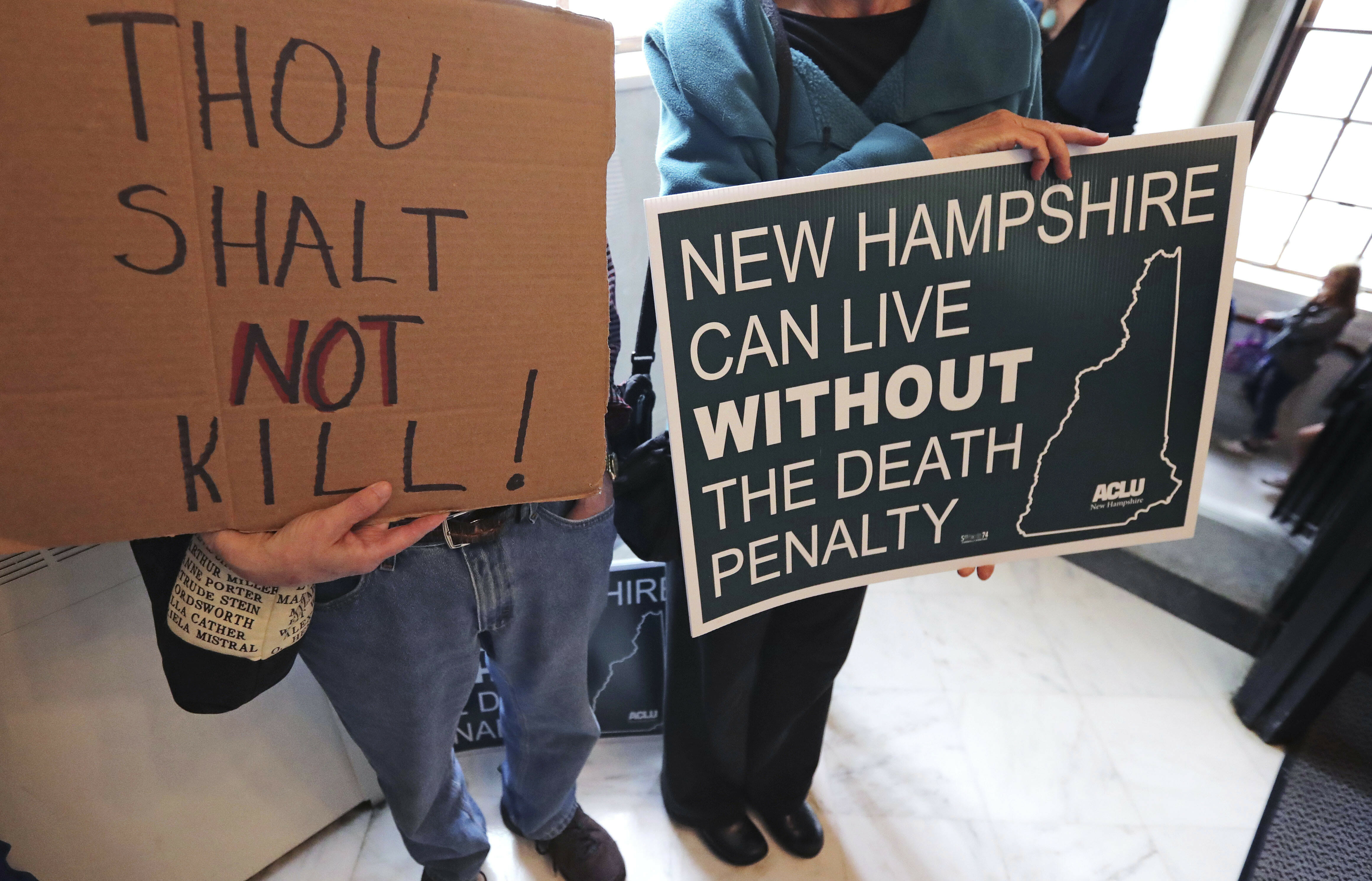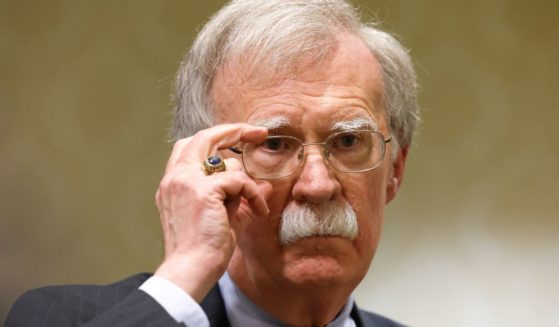
New Hampshire repeals its death penalty
CONCORD, N.H. (AP) — New Hampshire, which hasn’t executed anyone in 80 years and has only one inmate on death row, on Thursday became the latest state to abolish the death penalty when the state Senate voted to override the governor’s veto.
The Senate vote came a week after the 400-member House voted by the narrowest possible margin to override Republican Gov. Chris Sununu’s veto of a bill to repeal capital punishment.
“Now it’s up to us to stop this practice that is archaic, costly, discriminatory and final,” said Sen. Melanie Levesque, D-Brookline.
With New Hampshire’s action, 21 states have abolished or overturned the death penalty, according to the Death Penalty Information Center. Among the 29 states that allow capital punishment, governors have issued moratoriums on the death penalty in four of them.
New Hampshire’s death penalty applied in only seven scenarios: the killing of an on-duty law enforcement officer or judge, murder for hire, murder during a rape, certain drug offenses, or home invasion and murder by someone already serving a life sentence without parole.
The state hasn’t executed anyone since 1939, and the repeal bill would not apply retroactively to Michael Addison, who killed Manchester Officer Michael Briggs and is the state’s only inmate on death row. But death penalty supporters argued that courts will interpret it differently, giving Addison a chance at life in prison.
“If you think you’re passing this today and Mr. Addison is still going to remain on death row, you are confused,” said Sen. Sharon Carson, R-Londonderry. “Mr. Addison’s sentence will be converted to life in prison.”
Carson argued that New Hampshire has a narrowly drawn law and a careful, deliberative process to ensure innocent people are not executed.
“This is not Louisiana of the 1920s where Old Sparky was put on a flatbed truck and driven from prison to prison and people were executed. We are not those people,” she said. “That doesn’t happen here in New Hampshire.”
The Senate vote, 16-8, was exactly the two-thirds majority necessary to override the veto. Twelve Democrats and four Republicans supported ending the death penalty, while six Republicans and two Democrats voted to keep it. The latter included Sen. Lou D’Allesandro, D-Manchester, who represents the district in which Officer Briggs was killed. He urged his colleagues to remember law enforcement officers who put their lives on the line every day.
“I can’t abandon these people,” he said. “These people are there for us. They’re there for us, and I believe strongly we have to support them.”
Patrick Cheetham, past president of the New Hampshire Police Association, said he was frustrated by the outcome. He said the repeal effort was fueled largely by out-of-state interest groups who inaccurately portrayed the state as having applied the death penalty in an unjust manner. And he said the association would have opposed repeal even if there was no one on death row for killing a police officer.
“If it makes a criminal think twice, just once, and saves a police officer’s life, we think the death penalty should stay,” he said.
The bill was sponsored by Rep. Renny Cushing, a Democrat from Hampton whose father was murdered in 1988. He first asked the Legislature to abolish capital punishment 21 years ago.
“I think it’s important the voices of family members who oppose the death penalty were heard, the voices of law enforcement who recognize that the death penalty doesn’t work in terms of public safety, and the voices of the people in the state that know the death penalty is an abhorrent practice were all heard today by the Legislature,” he said.
Sununu, who vetoed the repeal bill surrounded by officers at a community center named for Briggs, said Thursday he was incredibly disappointed in the vote.
“I have consistently stood with law enforcement, families of crime victims and advocates for justice in opposing a repeal of the death penalty because it is the right thing to do,” he said in a statement.
But Sen. Bob Giuda, R-Warren, a former FBI agent, said while he greatly respects law enforcement, the death penalty is at odds with his anti-abortion principles. He called execution a “ghastly” process and urged his colleagues to “move our civilization” past it.
“I think we’re better than that,” he said. “I choose to move our state forward to remove the death penalty.”
___
Associated Press writer Kathy McCormack contributed to this story.
The Western Journal has not reviewed this Associated Press story prior to publication. Therefore, it may contain editorial bias or may in some other way not meet our normal editorial standards. It is provided to our readers as a service from The Western Journal.
Truth and Accuracy
We are committed to truth and accuracy in all of our journalism. Read our editorial standards.
Advertise with The Western Journal and reach millions of highly engaged readers, while supporting our work. Advertise Today.












